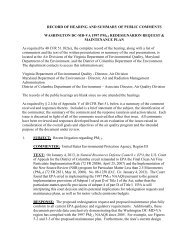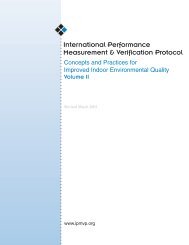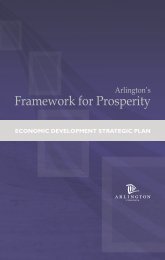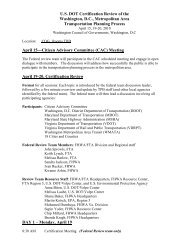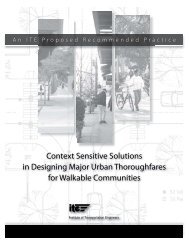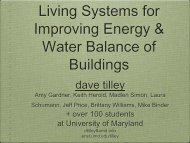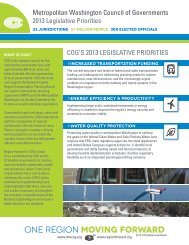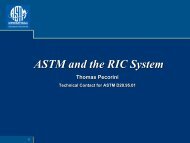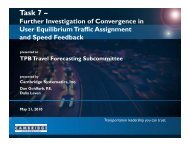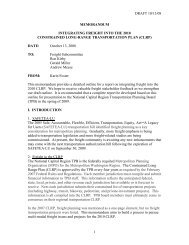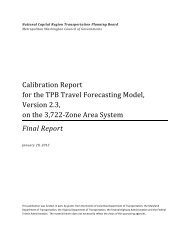PTI Local Government Energy Assurance Guidelines - Metropolitan ...
PTI Local Government Energy Assurance Guidelines - Metropolitan ...
PTI Local Government Energy Assurance Guidelines - Metropolitan ...
Create successful ePaper yourself
Turn your PDF publications into a flip-book with our unique Google optimized e-Paper software.
complementary efforts can actually improve their emergency planning and response times (and likely their<br />
post-emergency customer service rating), the company is likely to assist with local efforts to some degree.<br />
The company needs to understand that local planners view EAP as a true partnership. Once this understanding<br />
is established, information sharing can become more consistent. The company will want the local government<br />
to be a satisfied, long-term customer, and the local government wants reliable, affordable energy, along with<br />
useful information to assist in energy assurance and related emergency planning. It is a beneficial partnership<br />
with obvious gains for all parties.<br />
■ ■ Regulatory request: More formal in nature, a regulatory request will usually be presented to the State Public<br />
Utility Commission or equivalent government agency. Regulatory requests typically take three to six months<br />
from the time of the original request to the time that the response or information is required. A municipality’s<br />
legal counsel can prepare this request relatively easily.<br />
■ ■ Franchise agreement: <strong>Local</strong> governments often grant certain utility easements and/or rights-of-way so that<br />
service may be delivered. In exchange, the local government receives just compensation. The provisions<br />
of this agreement are generally codified in a franchise agreement between the two parties. Although these<br />
agreements are usually limited in scope for the express purposes of delivering and assuring reliable energy<br />
services, the scope of these franchise agreements has recently been expanded in many cases. A local<br />
government may consider including access to, and release of, relevant energy information as a term of its<br />
franchise agreement. It is important to remember the spirit of collaboration when crafting such language, and<br />
it may be helpful to work closely with the utility in advance of writing the first (draft) franchise agreement.<br />
Learning the information-related concerns of the utility is almost always useful, and it is beneficial for the<br />
utility to see why the government wants or needs their information.<br />
In the franchise agreement, it is helpful to include a statement outlining the right to discuss and negotiate what<br />
information is needed by the local government, and confirmation of the utility’s willingness to provide such<br />
information on a case-by-case basis. Generally, this process is very open-ended, and may result in very little<br />
information being provided at first—but the process ensures that the right to request information from time to<br />
time is contractually obligated. One risk to relying on franchise agreements for information disclosure is the<br />
infrequency with which these agreements are renewed: a 20-year time horizon for a franchise agreement is<br />
fairly typical, whereas a five-year agreement is rare.<br />
Situational Awareness Needs: Communicating Information during a Disruption<br />
As acknowledged in the 2010 <strong>Energy</strong> Sector-Specific Plan: An Annex to the National Infrastructure Protection Plan,<br />
“During times of increased security posture or emergency situations, the best information sources are the trusted<br />
relationships between government and industry. Such relationships ensure that necessary information is provided<br />
when and where it is needed, and can be directly applied to protect and recover key energy infrastructure and<br />
resources.” While sophisticated software programs and new hardware certainly help, human relationships and trust<br />
built between people results in quicker, more reliable and useful communication during an emergency.<br />
Crisis Communications: A Casebook Approach (1996) recommends that local governments undertake the following<br />
steps in response to an emergency:<br />
■■<br />
■■<br />
■■<br />
Explain what happened and the nature of the energy emergency.<br />
Explain who is involved in the energy emergency and their roles, to the best of the government’s knowledge.<br />
Explain when and where the energy emergency is occurring or has occurred.<br />
<strong>Local</strong> <strong>Government</strong> <strong>Energy</strong> <strong>Assurance</strong> <strong>Guidelines</strong> – Version 2.0 | 13



